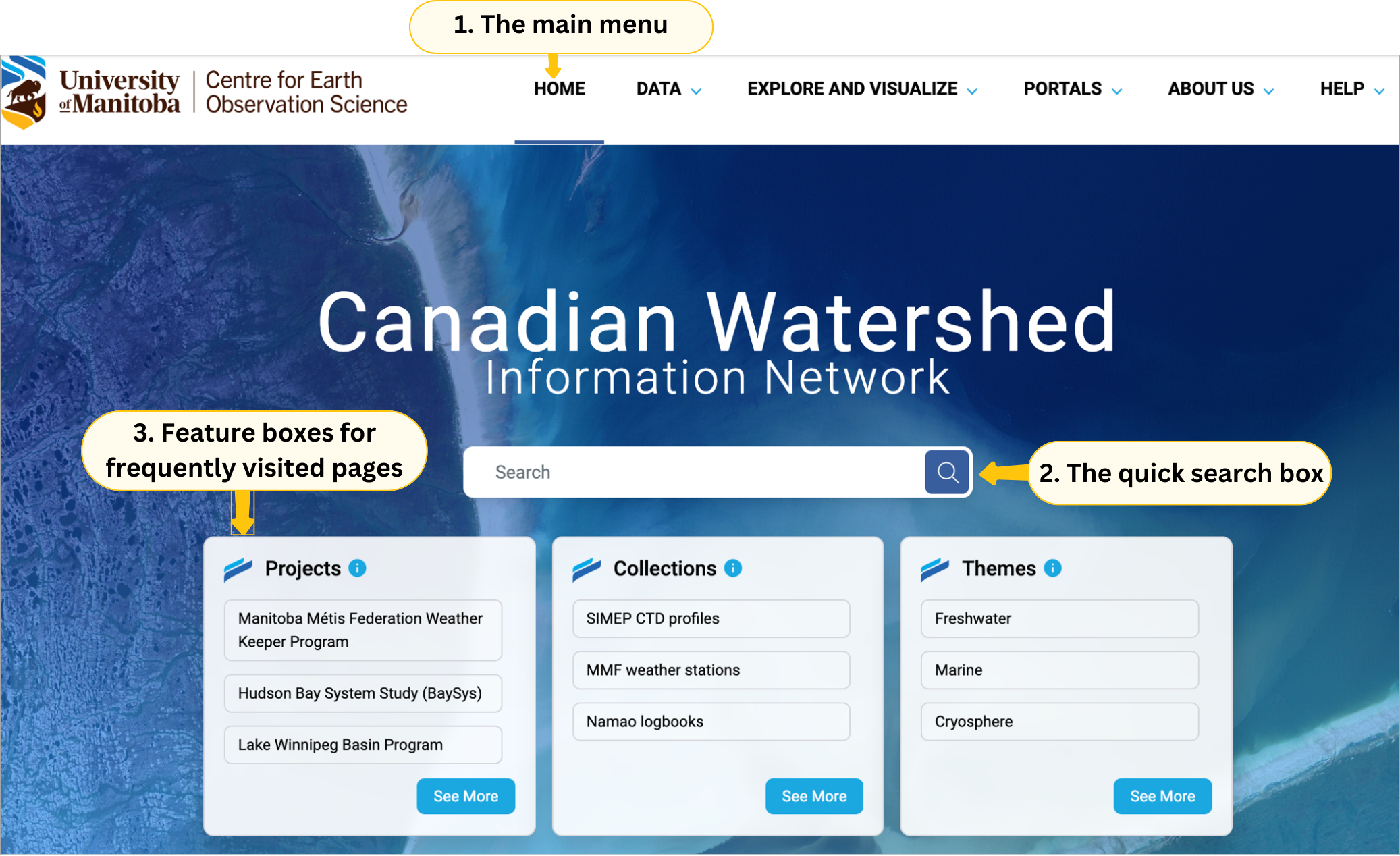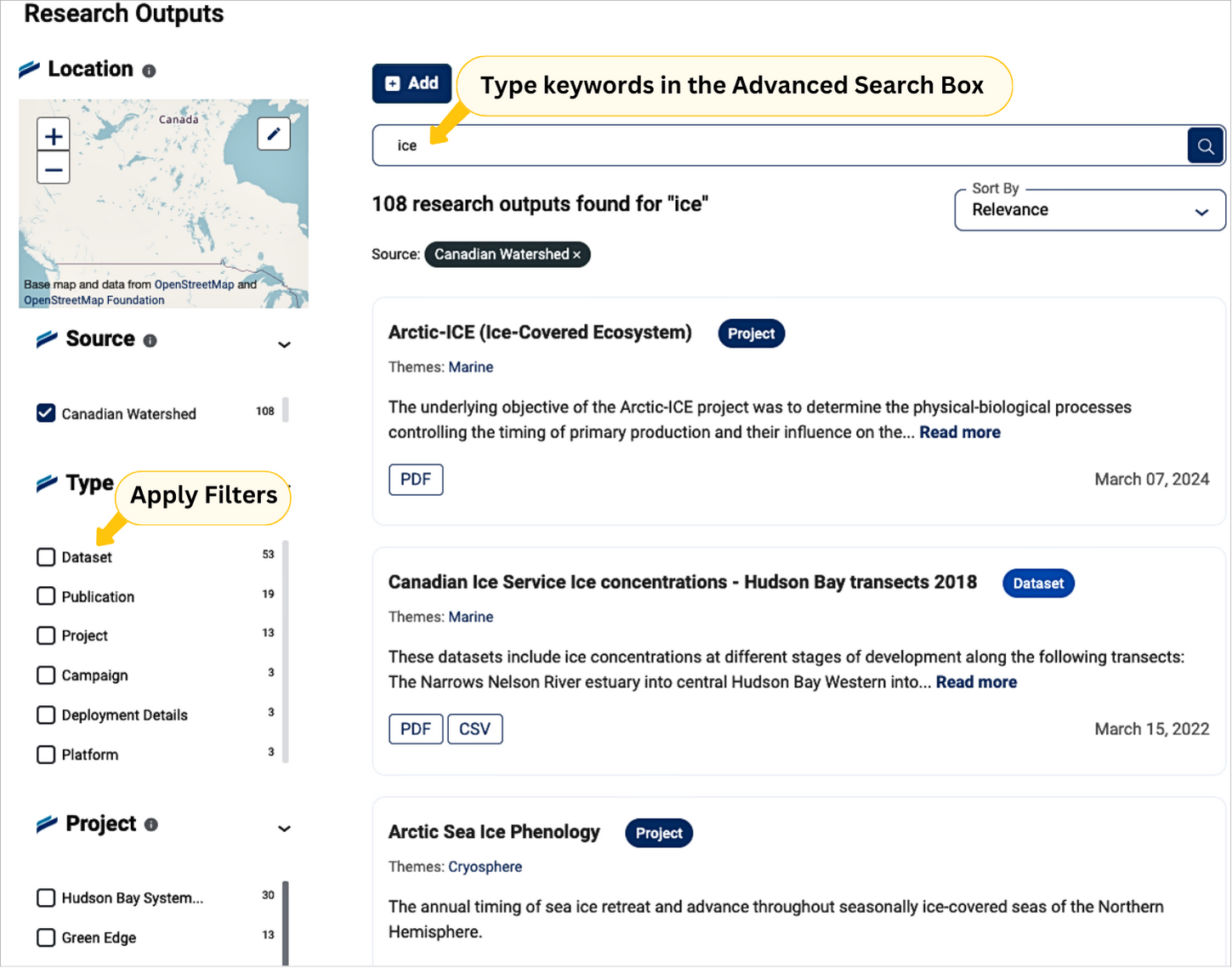CanWIN's Data Catalogue contains all research outputs hosted by CanWIN - datasets, projects, publications, instruments, deployments, and campaigns. There are several ways to find data, outlined below.
Accessing the Data Catalogue
From the Data Tab
Hover over the Data tab in the top menu to access:
- Data Catalogue → all research outputs. 💡 This is your main entry point to the Catalogue.
- Facilities → outputs grouped by facilities
- Projects → outputs that are project
- Themes → outputs grouped by themes

From the Home Page
The Home page highlights featured datasets, projects, and visualizations within the Data Catalogue. You can also search directly using the advanced search box or explore data with the spatial search tool.

Searching the Data Catalogue
Advanced Search Box
Use keywords in the advanced search box to quickly locate relevant research outputs.
Filters
Apply filters (e.g., type, theme, project) to narrow and refine your search results.

Spatial Search
Learn more on the Spatial Search page.
Viewing a Dataset Page
Outputs in the Data Catalogue may include datasets, projects, publications, instruments, deployments, or campaigns. Click a title to view its page with detailed information and downloadable resources.

Related Pages
Pages in the CanWIN Data Catalogue are interconnected to provide a cohesive view of research outputs and their context.
For example, instruments linked to datasets appear under Instruments. Related deployments, campaigns, publications, and projects also appear under their respective categories.
Quick guide to page categories.

Resources
A dataset or project may include multiple resources under Data and Resources. Click on a resource to view or download it. See Downloading Data for more information.
Quick guide to resource types.
